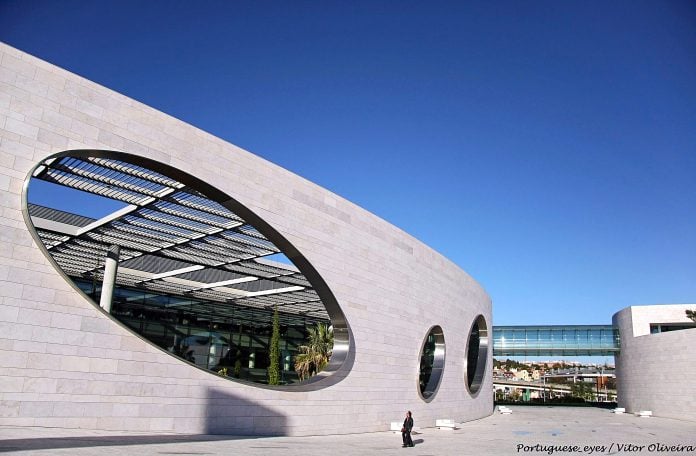Under the World Health Organization (WHO)’s ranking of healthcare systems, Portugal takes 12th place. Featuring both a private and public health sector, the country offers universal health coverage through the Servico Nacional de Saude (SNS). All residents in Portugal, as well as visitors with a European Health Insurance Card (for up to 90 days), can access universal healthcare. However, the public health system does occasionally charge low amounts (less than 20 euros) for particular treatments, prescriptions, and specialists. However, children under 18 and people over 65 can enjoy 100% free healthcare.
For those who cannot access the SNS such as non-residents and non-EU visitors, the private sector is easily accessible to all. Doctors at private clinics and hospitals are also more likely to be fluent in English. However, these will need to purchase private health insurance to cover any medical assistance while in Portugal.
Keep in mind that the emergency number in Portugal is 112, which connects you to an ambulance, police, and fire services. Our guide to healthcare in Portugal provides an overview of Portuguese healthcare for expats, residents, and non-residents.
Public Healthcare System in Portugal
The Servico Nacional de Saude (SNS), the national healthcare service is managed by the Ministry of Health and is free to all residents, including internationals and expats in Portugal. The SNS covers primary and secondary Portuguese healthcare services such as maternal care, community healthcare, some dental care, and more.
To access public healthcare, you must register with your local council called a junta de freguesia. You will get a proof of address which you will give to your local healthcare center for your registration, known as a centro de saude. You must also bring your residence card to register. After successfully registering with your health center, you will be given a Portuguese healthcare numero, a numero de utente. This number will be used whenever you access public healthcare services.
Can expats in Portugal access the public healthcare system?
Public healthcare is available through the Servico Nacional de Saude (SNS) for legal residents in Portugal, as well as those on short visits from the European Union, European Economic Area, and Switzerland through their European Health Insurance Card (EHIC). These can use their EHIC for free for up to 90 days. Non-residents and non-EU visitors will need to purchase private health insurance to cover any medical assistance while in Portugal.
Private Healthcare in Portugal
Portugal has a private and public healthcare sector so you can choose to access the private sector if you prefer. Many doctors work in both sectors, but the private sector is naturally an added cost, but that can be covered through medical insurance. Private healthcare is less expensive than in most countries, with an appointment costing around €40 to €50. However, certain doctors will charge higher prices at around €100, particularly specialists such as dermatologists. The waiting times are also a lot shorter for private clinics and hospitals.
Private Health Insurance for Expats in Portugal
If you have decided you will be using private health services or do not qualify for the public healthcare system, getting private health insurance will cover your medical costs. You can opt for a national or international private health insurance and the cost will depend on the amount of coverage, as well as your age. Some insurance companies in Portugal only offer health insurance to people under 55, while others make it a lot more expensive for those in retirement. Make sure to also check for any clauses that give insurance companies the right to cancel or increase the price once you reach a specific age. The average price for health insurance is around €50, but again this can increase depending on various factors.
Maternal Healthcare: Giving Birth in Portugal
If you can access the public health system, you can give birth at a public hospital for free. Births in the public healthcare system usually occur during the 40th week. In Portugal, you will be offered a “natural” birth and a cesarian will only take place if necessary, with your consent. After the birth, you will stay at the hospital under care for 38 to 72 hours.
You can also choose to give birth through the private healthcare system. Having a baby in a private hospital in Portugal can cost you between €2,900 and €6,000. If you have private insurance, it will help you cover these costs, many insurers pay for the entirety of the birth and hospital stay. However, keep in mind that if you want your birth in a private hospital to be covered by insurance, companies usually require you to purchase insurance that covers maternal care at least a year prior to the birth.
In the private sector, you are more likely to get a cesarian, as well as be able to have a home birth with a private midwife (although the latter is not covered by insurance). If an emergency occurs during delivery, you will still be covered for this through your public health cover. It’s also important to note that while private hospitals can provide you extra comfort such as your own private room, in case of emergency, it’s wise to stay close to a public hospital. Public hospitals have the qualified staff and specialized equipment necessary to tackle emergencies.

Guide to Having a Baby in Portugal
Children’s Healthcare in Portugal
For an expat child to access public healthcare in Portugal, their parents must be residents paying social security. However, if your child is born in Portugal, they are automatically granted access to the public healthcare system. Pediatrics is one of the top specializations in Portugal, with doctors working in health centers, hospitals, and clinics. Children and young people can see a pediatrician up to the age of 18. However, usually, your kid will be assigned a family doctor at your health center who will take care of regular checkups. They will refer you to a pediatrician when necessary. Nevertheless, parents can still take their children to a pediatrician at a private clinic where they can choose the doctor. To do so, having private insurance is pertinent to cover the costs.
There are multiple checkups your child will undertake under the national health system. At birth, between the third and sixth day of life, your baby will take the teste do pezinho to look for phenylketonuria, a rare inherited disorder. In the first year of life, check-ups occur at one week old, one month, two months, four months, six months, and nine months. For toddlers between 1 to 3 years old, check-ups occur at 12 months, 15 months, 18 months, two years, and three years. For children between 4 to 9 years old, check-ups occur at ages 4, 5, 6, and 8 years old. For those between 10 to 18 years old, a check-up occurs at 10 years old to prepare for the state of puberty, at 12 or 13 years old, and between the ages of 15 and 18 years old.
Mental Healthcare in Portugal
While the stigma surrounding mental healthcare remains in Portugal, the public system is becoming increasingly better at dealing with such care. Since the introduction of a National Mental Health Program in Portugal, there has been a 40% decrease in the institutionalization rate of those suffering from mental illness. From psychiatric hospitals, as well as local and regional care, mental health services are available under this program. To access the service, you must go to your GP to get referred to a mental health specialist.
You can also choose to pick out your specialist by going to a private clinic and booking an appointment with a private psychologist or psychiatrist. While not all private insurance companies cover mental health costs such as psychology and psychiatric appointments, many still do cover these costs to some degree.

Alternative Medicine & Health Treatments in Portugal
While alternative medicine and healthcare are growing in popularity in Portugal, it is not accessible through the public healthcare system. However, the government does regulate alternative treatments and licenses practitioners in treatments such as osteopathy, naturopathy, herbal medicine, massage, and more. Since 2012, all practitioners offering alternative treatments and therapies have to have the right amount of training in their specialty. While the public system does not grant access to such treatments, certain private health insurances, depending on the coverage are now open to covering the costs of alternative therapies.
Frequently Asked Questions (FAQs) About Healthcare in Portugal
Do you have to pay for healthcare in Portugal? Is healthcare in Portugal free?
If you are a legal resident in Portugal, you can access the national healthcare system, which is mostly free of charge. Portuguese healthcare is funded through general taxation and social security contributions. However, there are certain costs for specific specialists, treatments, and prescriptions, but these will usually not cost more than 20 euros. The same applies to those on short visits from the European Union, European Economic Area, and Switzerland who can access the SNS with their European Health Insurance Card (EHIC) for up to 90 days.
However, Portuguese healthcare is not free for non-residents and non-EU visitors. These will need to purchase private health insurance to cover any medical assistance while in Portugal.
Can tourists access free healthcare in Portugal?
If you are on a short visit from the European Union, European Economic Area, or Switzerland with a European Health Insurance Card (EHIC), you can access the free public healthcare system in Portugal for up to 90 days.
Does Portugal have a good healthcare system?
The World Health Organization (WHO)’s ranking of healthcare systems places Portugal at number 12. The 2019 Healthcare are Index lists Portugal’s system as 22nd best out of 89 countries. However, many argue that the service can be slow and that waiting times can be high.
Do you need health insurance in Portugal?
If you are not a resident, you need to purchase health insurance in Portugal. However, residents have access to the public healthcare system and do not need private health insurance, unless they want to access the private health system whereas this could be more affordable.


